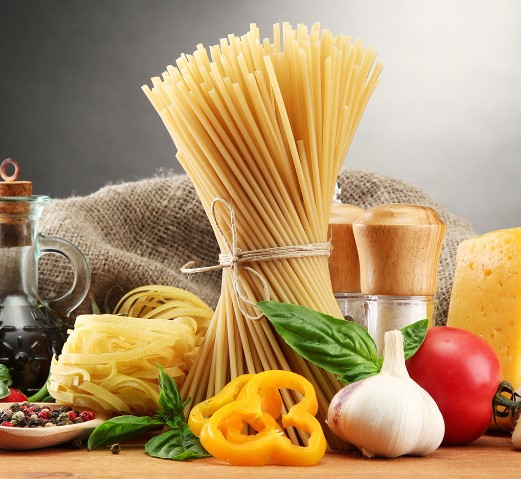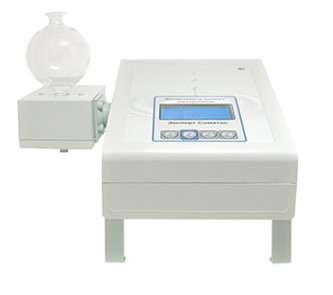Russia has limited access to the UN World Food Program

Russian suppliers to the UN World Food Program (WFP) have faced restrictions in their access to food supply tenders. We are talking about a program under which food is purchased and transferred to countries in need as humanitarian aid - Russia has been its supplier for the past 20 years.
One of the market participants who collaborated with the organization told RBC about the problems that began this year for companies that supplied food through these tenders. Flour millers, in particular, have faced a decrease in the number of orders from Russian exporters accredited by the WFP. The Russian Mills company (part of Grain Holding) announced this in May 2024 in a letter to the president of Opora Russia, Alexander Kalinin. The plant supplied such exporters with wheat flour “in large quantities,” and is now seeing a decrease in interest in the export of goods of Russian origin through the UN WFP, according to the letter, a copy of which was reviewed by RBC. Kalinin, in a conversation with RBC, clarified that he is aware of problems with Russian suppliers to the UN WFP, without disclosing details. Russian Mills and Grain Holding did not respond to the request at the time of publication.
The fact that Russian suppliers to WFP UN faced restrictions in access to tenders for the supply of food was confirmed by Dilyara Ravilova-Borovik, Deputy Permanent Representative of Russia to WFP and other international organizations in Rome (FAO - Food and Agriculture Organization of the United Nations and IFAD - International Fund agricultural development).
The press service of the World Food Program itself reported that they had received RBC’s request and promised to comment on it after clarifying the information.
What restrictions are we talking about?In recent years, Russian food products - flour , sunflower oil ,peas - took up to 20% of all external supplies of the UN WFP, says an RBC interlocutor among its partners. Russia's high share of supplies was due, he said, to the fact that the products were 10-15% cheaper than alternative suppliers, and this made it possible to supply more hungry people. The main recipients of Russian food through WFP have historically been the most humanitarianally vulnerable countries, such as Syria, Sudan, Afghanistan, Palestine and the countries of Central Asia.
“Nevertheless, in recent months, under various pretexts, access to Russian food has been severely limited by the UN WFP, which, given the budget deficit of this organization, can lead to an actual decrease in the ability to combat hunger on the planet,” says RBC’s interlocutor.
WFP's Russian partners face primarily restrictions based on the country of origin of the goods. “In recent months, it has become the norm that goods of Russian origin - and we are required to indicate this in the tender application - are in principle not allowed,” Dmitry Sukhov, head of the humanitarian support department of Abakan Air (the largest Russian supplier of WFP to the UN), told RBC. Russian suppliers have stopped receiving invitations to some tenders altogether, although suppliers from other countries are receiving them, Sukhov claims. In addition, according to him, there were claims regarding the quality of the goods, issued after the fact, although the goods were checked at each stage during production and loading by inspectors hired by the UN WFP, and successfully passed all laboratory tests .
What is the UN World Food ProgramThe World Food Program was created in 1961 as a joint project of the UN and FAO. The program was originally a pilot project to combat hunger and poverty in the world, and then it was continued on an ongoing basis.
WFP is now the world's largest humanitarian organization. It operates in more than 120 countries, delivering life-saving food to people in need. First of all, we are talking about countries with low per capita income, experiencing chronic food shortages, as well as victims of armed conflicts and natural disasters. “Conflict, climate change, disasters, inequality and most recently the COVID-19 pandemic mean that one in nine people in the world still goes to bed hungry, with hunger threatening millions,” the organization says on its website. To feed these people, the organization requires about $15 billion in funding annually.
WFP's activities are financed by voluntary contributions from donors - governments, organizations, corporations and individuals, according to its website. According to the latest available data, the total contribution to the organization was about $14.2 billion in 2022. Among the largest donor countries are the United States ($7.2 billion), Germany ($1.7 billion) and the EU ($698.2 million).
Russia has been participating in the UN WFP since 2002: then the first memorandum was signed on the beginning of cooperation for humanitarian purposes. All these years, Russia has had a strong and stable position as a partner of the organization - work was carried out both through the state and through specific supplier companies, says the Deputy Permanent Representative of Russia to the WFP and other international organizations in Rome. Through the government, Russia contributed funds to the organization’s budget, and domestic companies participated in WFP tenders for food supplies. In 2022, Russia donated $30.5 million to the program, becoming one of the 30 largest donors. Funds under the program are sent to more than 27 countries of the world, such as Tajikistan, Kyrgyzstan, Armenia, Afghanistan, Sudan, Somalia and Zimbabwe and others.
In turn, food from Russian suppliers has always been highly valued within the WFP mission. This happened for two reasons, explains Ravilova-Borovik: “Firstly, it is high quality. Secondly, Russian suppliers could offer competitive prices within the framework of the tender.” The positions of Russian suppliers are especially stable in traditional product groups. “This is flour, including fortified flour, peas and vegetable oil. In countries where there is a threat of famine, there is no talk of supplying an expanded food basket. The so-called basic set is supplied there, which allows people not to die of hunger,” explains RBC’s interlocutor.
Who imposes restrictions and why?The first signals from Russian suppliers that they were not allowed to participate in some tenders for the supply of food began to arrive several months ago, says the Deputy Permanent Representative of Russia to the WFP. “Of course, this development of the situation cannot but worry. We began to wonder what the problem was,” says Ravilova-Borovik.
The bulk of food procurement within the framework of the UN WFP program is carried out through free tenders on the site of the organization’s internal system. When the next tender is announced, companies authorized in the system, including Russian suppliers, receive a notification. But in 2024, companies from Russia stopped receiving some of these notifications.
“Currently, the situation is as follows: a number of donors, when transferring funds to WFP, include a clause in the conditions that their funds cannot be used to purchase food made in Russia or purchased from Russian companies,” explains Ravilova-Borovik.
WFP's terms allow donors to impose such conditions, since, unlike FAO, the program does not have mandatory contributions for its members, admits Ravilova-Borovik. “From a formal point of view, this is the right of the donor, but from the point of view of the organization’s goals of saving people’s lives, this cannot be called anything other than meanness,” the expert believes. “WFP becomes a hostage to the situation and an instrument in the hands of a certain number of donors who, while settling political scores with us and clearing the market of competitors, are ready to sacrifice the lives of people in needy countries who will not receive food at the required price. This means the organization will be able to feed and save fewer people.” RBC's interlocutor does not specify which specific categories of donors and from which countries we are talking about.
According to the UN General Assembly resolution, humanitarian assistance is guided by five principles, one of which is impartiality, recalls Ravilova-Borovik. The consequences of donor actions against Russian suppliers for countries in need could be significant, she warns: “Russian suppliers will find a buyer for their food in any case. The question is whether the WFP and the countries where it is necessary to feed the hungry - Afghanistan, Yemen, Syria and others - will benefit from these restrictions. They clearly won't benefit from this. Therefore, it is very important that competitive, inexpensive, but high-quality food from Russia continues to flow into these countries through the WFP,” the expert sums up.
Abakan Air noted that they have been cooperating with the UN and its structural divisions for more than 25 years and hope that the situation with restrictions on Russian food will be resolved. “We hope that the UN, as the largest supranational entity, based primarily on humanistic considerations and its charter, will resolve the existing misunderstanding regarding the access of Russian food for humanitarian needs,” Sukhov added.
The UN press service forwarded RBC's request to WFP. The publication also sent a request to the Ministry of Foreign Affairs and the Ministry of Agriculture of Russia.


























































